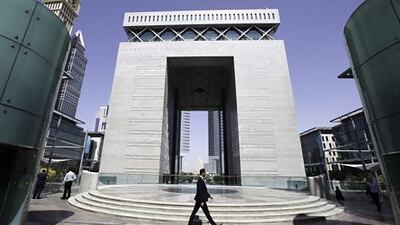Standard Life is lobbying for an end to a moratorium on new licences for onshore insurers, in a bid to tap into the UAE market for savings and investment products.
The Edinburgh-based company says that a freeze on new licences - intended to combat saturation in the general insurance segment - was hampering competition in life insurance lines and contributing to the amount of capital sent overseas.
International insurance firms have sought access to an industry that is expected to grow to US$37.5 billion across the Arabian Gulf by 2017, according to estimates from Alpen Capital.
Easing access to the onshore insurance market would help the UAE to retain more capital instead of it flowing overseas, said Chris Divito, Standard Life's chief executive for the Middle East.
"The moratorium, we believe, was brought in to resolve an issue with regard to general insurance," he said. "There's no oversupply of life cover or life insurance products in the UAE. It's purely a general insurance issue, and we've been caught by dint of that sledgehammer being used to crack a walnut."
The firm has spent three and a half years planning its entry to the UAE, and recently established an office in the Dubai International Financial Centre. But it has been prevented from accessing the onshore market as a result of a 2009 moratorium on new insurance licences.
The lack of an insurance licence limits the firm's products to capital redemption bonds, which act like life insurance products but are more expensive. Being able to provide life insurance would "reduce the capital strain considerably" and allow the firm to cut costs for consumers or reinvest elsewhere, Mr Divito added.
Standard Life, which is also the UK's biggest provider of corporate pensions, is also keen to develop that business line in the Emirates.
European insurance firms, including Zurich, have recently sought to grow their presence in the UAE, the region's biggest insurance market.
The Gulf insurance industry is expected to grow at a compounded annual growth rate of 18.1 per cent during the five years until 2017 to a total value of $37.5bn, according to a new report from Alpen Capital.
The bank says growth will be driven by rapidly expanding populations and implementation of compulsory insurance programmes, including for health care, while insurers will be forced to develop rapidly to meet the needs of an influx of middle-class expatriates.
"The sector is still relatively underdeveloped and key market indicators trail the world average by a large margin," the report said. "However, it continues to evolve, and the strength of fundamental industry drivers suggests solid growth prospects."
Both Dubai and Abu Dhabi's insurance company equity indexes have trailed the wider market benchmarks, despite a substantial rally on the bourses this year.
The UAE Insurance Authority's powers are currently being carved up as part of a move to a "twin-peaks" model of financial regulation, which will result in the Central Bank overseeing macroprudential regulation.
A new regulator, with the existing remit of the Securities and Commodities Authority, will cover insurance as well as consumer protection.
The life insurance industry, virtually non-existent a few years ago in countries such as Saudi Arabia and Qatar, covered 0.1 per cent of the GCC population last year, Alpen Capital's report said.
"Although the GCC residents have a high per capita income in general, which is a major determinant for the size of life insurance segment, the majority of the residents have so far abstained from taking a life cover," the report added. "The fact that a large percentage of the residing expatriates are blue-collar workers and have limited capacity to avail insurance has restricted the segment's growth."
Developing Sharia-compliant products was another hurdle, the report added.

